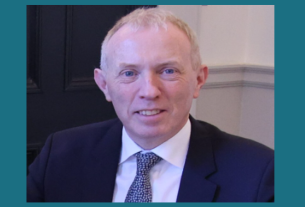Though its current evaluation of the global public health risk is “low”, the UN health agency cautioned that with the onset of winter in the Northern Hemisphere, the new variant “could increase” the burden of respiratory infections in many countries, noting other diseases such as RSV, influenza and childhood pneumonia that are already on the rise.
Rapidly increasing spread
The classification of JN.1 as a separate variant of interest (VOI) is down to “its rapidly increasing spread” around the globe, WHO said in an advisory issued on Tuesday.
JN.1 has been found in many countries, including India, China, the United Kingdom, and the United States.
Previously JN.1 was classified and tracked as part of its parent BA.2.86 lineage, which itself is a descendant of the Omicron or B.1.1.529 variant of SARS-CoV-2, the virus causing COVID-19 disease.
In comparison with its parent lineage BA.2.86, JN.1 has an additional mutation (the L455S mutation) in the spike protein.
Risk evaluated as ‘low’
WHO said that based on the currently available data, “the additional global public health risk posed by JN.1 is currently evaluated as low.”
“Despite this, with the onset of winter in the Northern Hemisphere, JN.1 could increase the burden of respiratory infections in many countries,” it added.
WHO also highlighted that current vaccines continue to protect against severe disease and death from JN.1 and other circulating variants of SARS-CoV-2.
Other respiratory diseases
COVID-19 is not the only respiratory disease in play. Influenza, RSV (Respiratory Syncytial Virus) and common childhood pneumonia are on the rise, according to WHO.
It advised people to take measures to prevent infections and severe disease using all available tools, including wearing a mask when in crowded, enclosed, or poorly ventilated areas, and keeping a safe distance from others.
It also urged everyone to put safety first by covering coughs and sneezes; cleaning one’s hands regularly; and staying up to date with vaccinations against COVID-19 and influenza, especially if you are at a high risk of severe disease.
Additionally, people should stay home if they are sick, and to get tested if they have symptoms, or if they might have been exposed to someone with COVID-19 or influenza.
COVAX facilitated the delivery of some two billion doses of COVID vaccines globally, pictured here, a delivery of Pfizer COVID-19 in vaccines in Nepal in 2021.
Global vaccine initiative winds down
Also on Tuesday, WHO announced that COVAX, the landmark multilateral mechanism for equitable global access to COVID-19 vaccines, launched in 2020, will end on 31 December 2023, as COVID-19 vaccinations shift to regular immunization programmes.
Since its launch in 2020, COVAX delivered nearly two billion doses of vaccines to 146 economies and averted an estimated 2.7 million deaths in lower-income economies.
“Low- and lower middle-income economies will continue to receive COVID-19 vaccines and delivery support from Gavi, the Vaccine Alliance in 2024 and 2025, with 83 million doses so far requested for 2024 from 58 economies,” WHO said in a statement.
COVAX was the vaccines pillar of the Access to COVID-19 Tools (ACT) Accelerator, the ground-breaking global collaboration to accelerate the development, production, and equitable access to COVID-19 tests, treatments, and vaccines.
It was co-led by Gavi, the Vaccine Alliance; the Coalition for Epidemic Preparedness Innovations (CEPI); WHO; and the UN Children’s Fund (UNICEF).
Unprecedented emergency response
With the rallying cry “no one is safe until everyone is safe”, COVAX partners urged the world to place vaccine equity at the heart of the global response to the COVID-19 pandemic, and for every country to have at least enough doses to protect those most at risk.
“The joint efforts of all partners to ensure an equitable response to the pandemic helped protect the futures of millions of children in vulnerable communities,” said Catherine Russell, Executive Director of UNICEF.
“This huge and historic undertaking is something we can be collectively proud of and build on. UNICEF will continue to deliver vaccines to the world’s youngest to stop the spread of all preventable diseases and build strong health systems for the future.”


